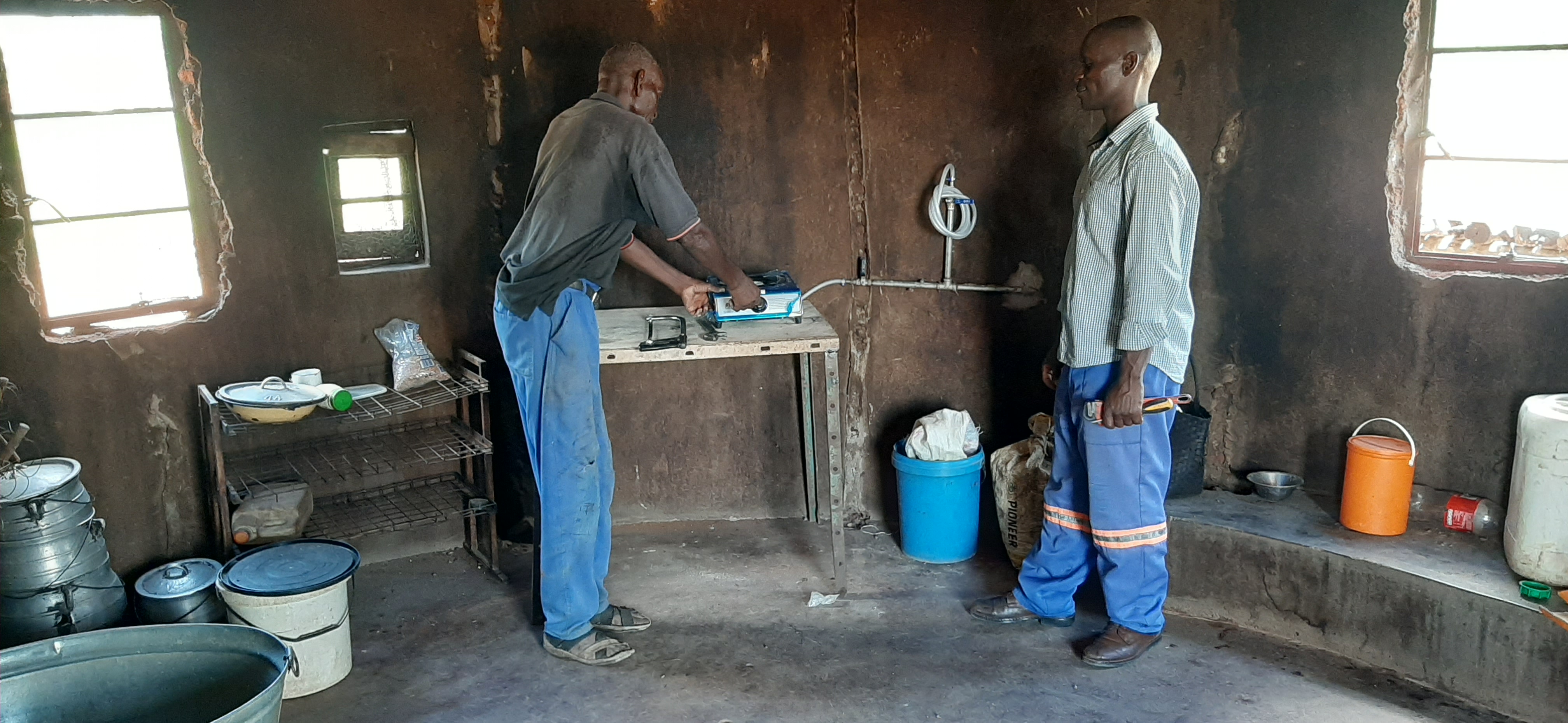
Former Muhlanguleni Cattle Business Centre (CBC) chairperson, Hlengani Chivale (72) is now a happy man after being selected to host a biogas digester demonstration site in Ward 10 Chiredzi district in Masvingo province. He lives with his wife who takes care of two grandchildren aged eight and nine years who are still at primary level. His son works in neighbouring South Africa and this places a huge household labour and care burden on Chivale and his wife despite their fragile health condition due to old age.
Like most old men in his area, one of Chivale’s biggest challenge is walking long distances to fetch firewood. “Firewood is so scarce here,” he said. “People have to walk for more than three kilometres to pick firewood from the nearest forest”. He constantly suffers from swollen feet and chronic back pains emanating from the long distances he had to walk scouting for firewood.
In 2019, when the Beef Enterprise Strengthening and Transformation (BEST) project team arrived in Ward 10, Chivale was chosen by fellow community members to host a biogas digester demonstration in the district.
The idea is to equip farmers with the knowledge and practical skills to adopt this renewable and smart energy source that help them lead better lives as well as fighting deforestation and indoor pollution.
He owns a herd of 22 cattle which produce enough cow dung to feed the plant.
“I am hopeful that the recently constructed biogas digester will make our life easy. Thanks to the innovation of creation of energy using locally available resources such as cow dung, kitchen waste and grass”, added Chivale.
Biogas – the process of producing energy by fermenting waste – is gaining in popularity around the world as a way of reducing reliance on fossil fuels, cutting deforestation and providing cheap, reliable and easy-to-produce local energy.
The promotion of biogas rides on marketing its advantages over other energy sources such as firewood, in that it is cleaner, more environmentally friendly and reduces drudgery. It is smoke and soot-free and cooks faster than wood. A quick survey with farmers from the area noted they spent between US$15 - US$20 per month on firewood. Cumulatively, the cost of biogas will save them money in the long run as compared to the cost of firewood, candles and paraffin.
Collecting firewood is generally causing the depletion of forestry lands and Environment Management Authority (EMA) has been fining individuals caught chopping wood in the nearby Gonarezhou National Park. The bio-slurry from biogas is a good fertilizer, which is rich in nitrogen. It promotes plant growth as it facilitates trapping of moisture and nutrients.
There is huge potential for biogas in Chiredzi and Mwenezi districts given the energy access challenges and the ongoing need for energy. Rural communities possess significant herds of cattle and land where biogas digesters can be constructed. Promotion of the technology in the two districts has raised interest in biogas, and the demonstration sites provide venues where farmers can see a biogas digester in use.
Chivale has already started using biogas energy for cooking and this move has eased the burden of travelling long distances to search for firewood. To date, Chivale and another lead farmer, Mr Ndlovu in Mwenezi, are advocates for the promotion of biogas technology in Masvingo province. This technology has attracted much interest from neighbouring farmers who are keen to adopt the simple technology to develop clean, affordable and easily accessible renewable energy from biomass.
